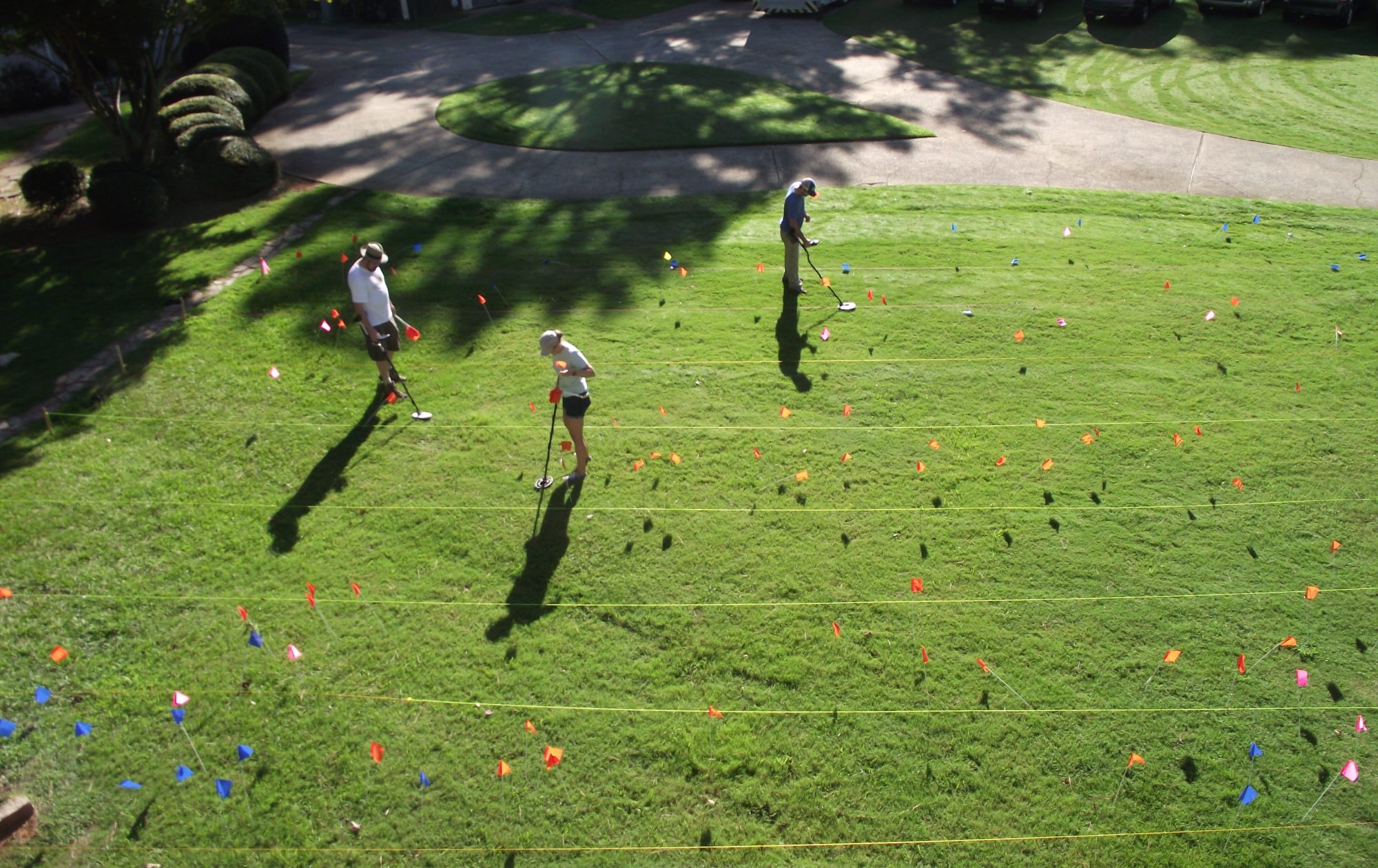
Joseph Balicki, MA/RPA. Joseph is an expert on the Archeology of Civil War sites and investigating them through metal detection. He has over 28 years of experience metal-detecting and now focuses on promoting the use of metallic survey on archaeological sites, teaching how to develop research strategies, and the use of a variety of metal detectors. Jo is proficient in conducting primary research, and KOCOA analysis metal detector surveys on Civil War archeological sites ranging from fortifications to battlefields, winter quarters, cantonments and front-line temporary camps. He has presented more than 30 papers at professional conferences covering military camp layout and Civil War site archeology, and contributed 10 chapters to publications addressing the archeology of the American Civil War. In 2007, he was the recipient of the Alexandria Archaeological Commissions’ Ben Brenman Archaeology Award for his work in Alexandria, VA, developing realistic archeological metal detection methods to investigate Civil War sites in urban settings. Jo recently retired; his Cultural Resources management career extended over 40 years in North American archeology, with site experience ranging from the Paleo-Indian through Historic periods and involvement in hundreds of cultural resources management projects. Notably, he is credited with finding the oldest bowling ball in North America.

Mackenze Burkhart, RA. Mackenze Burkhart is the Operations Manager for American Veterans Archaeological Recovery and a Commissioned Officer Candidate in the Pennsylvania Army National Guard. She is a Registered Archaeologist (RA) and has a BA in Archaeology and Anthropology from Dickinson College in Carlisle, PA.
Through her work with AVAR and in partnership with the Defense POW/MIA Accounting Agency (DPAA), the National Park Service, and AMDA, she has had the opportunity to work on conflict sites spanning from the French & Indian War to WWII aircraft recoveries. She has participated in metal detection surveys in Pennsylvania, New York, Virginia, Texas, Sicily, Israel, and England.
Mackenze has completed several certificates supporting her position, including Working with Veterans and Their Families, Mental Health First Aid, Wilderness First Responder, and the DPAA Academy Partner Orientation. She has a passion for improving leadership and management practices within the field of archaeology and especially loves the dynamic nature of metal detection surveys.
As of November 2023, she has executed the project planning and logistics for thirteen AVAR projects, five of which were international. She serves as Field Director for AVAR’s ‘Finding Medina’ project, a systematic metal detection survey in search of the lost 1813 Battle of Medina in San Antonio, Texas.
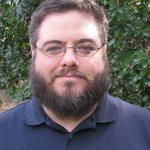
Josh Blackmon, MA. Josh Blackmon is an historian with New South Associates in Stone Mountain, GA and serves as the president of the Modern Heritage Foundation. Josh received an MA in Public History from Arizona State University and a BA in Anthropology from Georgia State University. Josh has worked on archaeological sites in the southeastern, southwestern, and mid-Atlantic regions of the United States as well as the Caribbean ranging from Paleo-Indian to the Historic Period. Josh is interested in the application of technology in archaeology both in the field and laboratory. He is an instructor with Advanced Metal Detecting for the Archaeologist and has over 15 years of metal-detector survey experience on a variety of historic sites including Colonial, Revolutionary War, Civil War and historic farmstead and industrial sites.
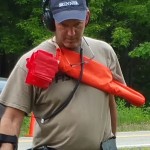
Joel Bohy. Joel is the Director of the Historic Arms & Militaria department at Bruneau & Co. Auctioneers and a frequent appraiser of Arms & Militaria on the PBS series Antiques Roadshow. He has worked as a material culture consultant on numerous historical projects and has a passion for the basic objects worn or carried by a soldier and civilian during the American Revolutionary War period. Picking up a detector for the first time while working on the Parker’s Revenge Archaeology project at Minuteman National Historical Park, it sparked a passion for battlefield archaeology which led to participating in AMDA as a student at numerous locations. He now volunteers on other battlefield archaeology projects where training help may be needed.
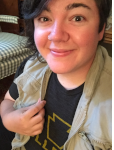
Casey Campetti, MA RPA. Casey is an Environmental Protection Specialist for USDOT. She received a BA from Bristol University and an MA in Applied Archaeology from Indiana University of Pennsylvania (IUP). Casey has over 17 years of experience working in cultural resources management.
Casey has conducted systematic metal detector surveys at precontact and historic period sites in the Great Lakes and New England and has led or co-led several AMDA courses. She is on the Board of Directors for the Register of Professional Archaeologists.
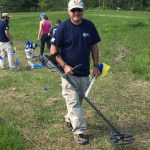
Joel Dukes, MA/RPA. Joel is an archaeologist with the National Park Service, Northeast Archaeological Resources Program based in Lowell, Massachusetts. He has a Master’s in Anthropology from the University of Georgia and a BA in Anthropology from the University of Southern Mississippi. Joel has over 30 years of experience as an archaeologist with a focus on the eastern United States. He is the archaeology advisor for a number of battlefield parks including Richmond National Battlefield, Fredericksburg and Spotsylvania National Battlefield and Minute Man National Historical Park and has been active in developing and leading research projects that incorporate metal detection. Joel recently completed training to become a Scientific Recovery Expert with the Defense POW/MIA Accounting Agency (DPAA) and will be using his metal detecting skills to lead an American Veterans Archaeology Recovery (AVAR) team in the recovery of a missing WWII pilot in Sicily this year.
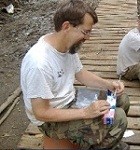
Chris Espenshade, MA/RPA. Chris is a professional archaeologist with more than 27 years of supervisory experience in CRM archaeology of the eastern United States and Caribbean. He has an MA in anthropology from the University of Florida and a BA in anthropology from Wake Forest University. Chris has applied metal detecting on the following projects: Data Recovery Excavations at Camp Baird, the autumn 1864 encampment of the 32nd US Colored Troops (1989); Evaluation and data recovery investigations of the Spanish Wells Picket Post, Hilton Head Island, South Carolina (1990); Survey and testing of a portion of the Civil War defenses at Secessionville, South Carolina (1994); Survey of the core of the battlefield of the Battle of New Hope Church, Paulding County, Georgia (1995); Survey and Evaluation of the Reserve Line of the Chattahoochee River Line (1998); Metal-Detector survey of the Rocky Cove CCC Camp, Pisgah National Forest (2005); Archaeological Search for the Battery Locations, Battle of Newnan/Battle of Brown’s Mill, Coweta County, Georgia (2007); Intensive Metal-Detector Survey of 37 acres of the Resaca Battlefield, Gordon County, Georgia (2008); Cultural Resource Baseline Inventory of the Battle of Blountville, Tennessee (2009); Archaeological Evaluation in Support of Landscape Analysis, Fort Heiman, Kentucky (2010); and Metal- Detector Survey of An Additional 46 Acres, Resaca Battlefield (2011). He has written on military archaeology in North American Archaeologist, Journal of Middle Atlantic Archaeology, and Northeast Historical Archaeology. He has presented on the subject at the SHA, MAAC, ASV, and GSA conferences. Chris was a co-organizer and presenter at the 2011 conference Advanced Metal Detecting for Archaeologists.

Kerry Gonzalez, MA, RPA. Kerry is the Chief of Cultural Resource Management George Washington Birthplace National Monument & Thomas Stone National Historic Site. She is a graduate of the State University College at Brockport where she earned her BA and MA in Early American History with a focus on archaeology. Kerry has over 20 years of experience working in cultural resources management (CRM) throughout the Mid-Atlantic and has been metal detecting in Virginia since 2004, with the bulk of her experience being at Civil War-era encampments. Most recently, Kerry managed a large battlefield study as well as led the metal detecting effort on a contact period site in Michigan. Kerry is also extremely active in the collections management field and is a strong advocate for improving and updating regional and national curation standards. She is currently chair for the American Cultural Resources Association (ACRA) collections and curation committee and engages in public and professional education and outreach through social media, professional publications, workshops, and webinars.
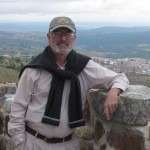
Charles Haecker, MA/RPA. Charlie recently retired from the National Park Service, Intermountain Region, where he had been employed as an archaeologist since 1992. Prior to his career with the NPS, Charlie worked for nearly 20 years for various federal and state agencies as well as private consulting firms throughout the southwestern and southeastern US. All totaled he has over 40 years of archaeological experience. He received his MA in Anthropology (archaeology concentration) in 1976 from Eastern New Mexico University.
While at the NPS he integrated use of systematic metal detection for their research. One of the best known examples of his work is from Palo Alto National Battlefield (location of the February 2015 AMDA training), which culminated in On the Prairie of Palo Alto (1997 Texas A & M press). He has taken the AMDA class (at Palo Alto) and has extensive experience speaking and relating information to a variety of student types.
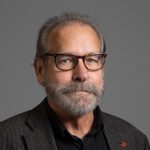
William B. Lees, PhD, RPA. William Lees holds the MA and PhD in Anthropology (Historical Archaeology) from Michigan State University and is a Registered Professional Archaeologist. He has worked extensively in the Great Plains and Southeastern United States. His research has included terrestrial and submerged archaeology with a focus on the early to mid-nineteenth century and sites of conflict of the American Civil War and the Indian Wars as well as memorialization of the Civil War and other conflict. His key battlefield projects, all based on metal detector survey, include the battles of Santa Rosa Island, Florida (1861); Honey Springs, Muscogee Nation, Oklahoma (1863); Mine Creek, Kansas (1864); and Washita, Oklahoma (1868). Research at Santa Rosa Island included a 2016 AMDA training. His work at Mine Creek led to the development of a since-implemented interpretive and preservation plan. At Honey Springs, his work was the basis for the preservation of additional battlefield land and development of park access and interpretive trails. Lees is past president of the Society for Historical Archaeology, Society of Professional Archaeologists, the Register of Professional Archaeologists, and the Plains Anthropological Society. He is recipient of the Register of Professional Archaeologist’s McGimsey-Davis Award for outstanding service to professional archaeology and the Society for Historical Archaeology Carol V. Ruppé Distinguished Service Award.
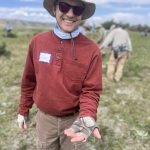
Nathan May, MA/RPA. Nathan is an Archaeologist and Cultural Resource Specialist at the Wyoming State Historic Preservation Office. Nathan received his Master of Arts in Anthropology (Historic Archaeology focus) from the University of Idaho. Nathan has ample experience excavating, conducting survey and testing, as well as metal detection surveys on precontact and historic sites in the Intermountain, Great Plains, and Pacific Northwest. He has a particular interest, and has worked on, a variety of 19th century American trail and battle sites.

Laura Raylene Reed, MA. Laura is an Archaeological Field Director at the Center for Environmental Management of Military Lands (CEMML), a part of Colorado State University in Fort Collins, CO. She received her MA from the University of Glasgow, Scotland, in Conflict Archaeology and Heritage Management and her BA in Anthropology with an emphasis in Archaeology from Lindenwood University, St. Charles, MO. Laura has over 10 years of experience working in cultural resource management. Her experience ranges from Paleo to mid-20th century historic sites across 20 states, with a heavy focus on historic sites in the mid-west. She has participated in metal detecting surveys at historic period sites in Missouri, Wyoming, and at the Battle of Waterloo in Belgium.
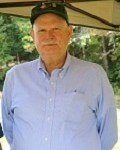
Doug Scott, PhD/RPA. Dr. Douglas Scott is considered by many to be the father of military archaeology. Doug retired in 2006 from the US National Park Service after more than 30 years of with the Department of the Interior, He is currently Adjunct Research Faculty at Colorado Mesa University. Doug specializes in nineteenth century military sites archeology and forensic archeology. He is particularly noted for his expertise in battlefield archeology and firearms identification. He is best known for the archaeological investigations of the Little Bighorn Battlefield National Monument, and his award winning book, Uncovering History: Archaeological Investigations of the Little Bighorn Battlefield, summarizes over 20 years of work at the site. He has served as President of the Colorado Council of Professional Archaeologists and the Nebraska Association of Professional Archeologists, and on the Board of Directors of the Society for Historical Archaeology and the Plains Anthropological Society. He was president of the Society for Historical Archaeology in 2006 and 2007. Doug has worked on more than 50 battlefield sites, including Palo Alto, Sand Creek, Big Hole, Bear Paw, Wilson’s Creek, Pea Ridge, Centralia, and Santiago de Cuba. He was awarded the Department of the Interior’s Distinguished Service Award in 2002 for his innovative research in battlefield archaeology that started with his work at the Little Bighorn Battlefield National Monument. He is a co-recipient of the 2010 Leslie Hewes Award for best Social Science article published in Great Plains Research. Dr. Scott has also been involved with human rights and forensic investigations since the early 1990s. He has worked with the United Nations and various human rights organizations in El Salvador, Croatia, Rwanda, Cyprus, and Iraq. He served as Instructor and Keynote Speaker at the 2011 Advanced Metal Detecting for the Archaeologist conference.
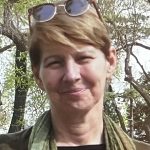
Mary Jane Balicki. is an avocational archeologist with experience on historic, Paleo-Indian, Polynesian, and conflict archaeological sites. Prior to retiring, she worked at the World Bank Group. MJ has over 10 years of experience metal detecting on both historic and conflict sites. Projects include consultant work for various CRM firms, volunteering on National Park Service Projects, as well as private consulting. Military site experience includes surveys at Gettysburg, Valley Forge, and Jumonville Glen, PA, Saratoga, NY, Appomattox and Totopotomoy Creek, VA. Additionally, she and Jo Balicki have undertaken a multi-year project at Cedar Creek Battlefield, VA. MJ completed the AMDA class and volunteered at several other classes prior to becoming an instructor. She brings extensive experience on training techniques and methods with a focus on conveying practices and procedures that improve student performance.
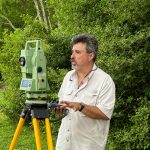
Joseph (Jay) Waller, MA, RPA is a Senior Archaeologist with The Public Archaeology Laboratory, Inc. (PAL) and Registered Professional Archaeologist with over 30 years of professional experience in cultural resource management and historic preservation planning in the Northeast. He received his B.A. in Anthropology from the University of Rhode Island (1993) and his M.A. in Anthropology with a specialization in Northeastern Native American archaeology from the University of Connecticut (1998). He successfully completed the AMDA Bennington Battlefield certification workshop in 2017 and has since completed the National Park Service National Center for Preservation Technology & Training (NCPTT) The Archaeology of Firearms and Current Archeological Prospection Advances for Non-Destructive Investigations training programs.
